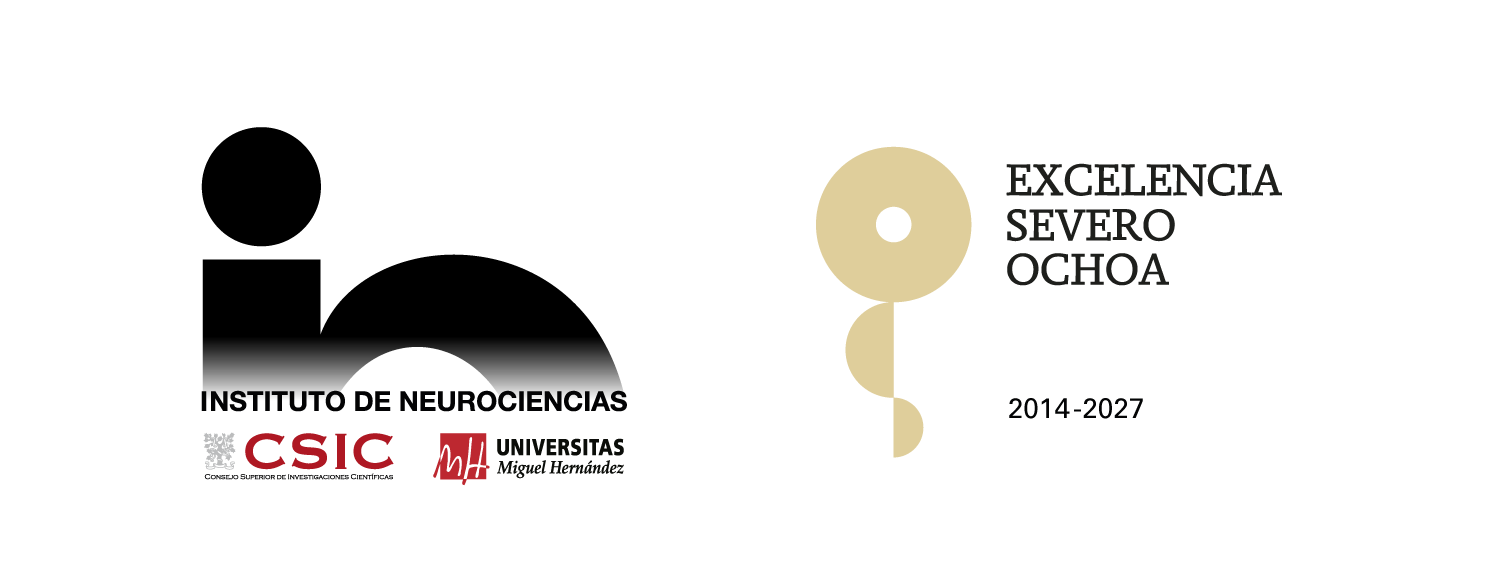The Spanish Minister for Digital Transformation and Public Function, José Luis Escrivá, visits the Institute for Neurosciences CSIC-UMH
19 de April de 2024
The Institute for Neurosciences (IN), a joint center of the Miguel Hernández University (UMH) of Elche and the Spanish National Research Council (CSIC), received a visit from the Spanish Minister for Digital Transformation and Public Function, José Luis Escrivá Belmonte, who has traveled to Alicante to see first-hand the facilities of this research center of excellence and several of the innovation projects that are being developed thanks to the support of the Agència Valenciana de la Innovació (AVI).
The minister was received by the rector of the UMH, Juan José Ruiz, the president of the CSIC, Eloísa del Pino, and the IN management team. The vice-rector of Research and Transfer of the UMH, Ángel Carbonell, the vice-president of scientific and technical research of the CSIC, José María Martell, and the Institutional delegate of the CSIC in the Valencian Community, Juan Fuster, also attended the visit. After an initial meeting, in which the director of the IN, Ángel Barco, presented the main lines of research of the institute, the delegation took a tour of several IN laboratories.
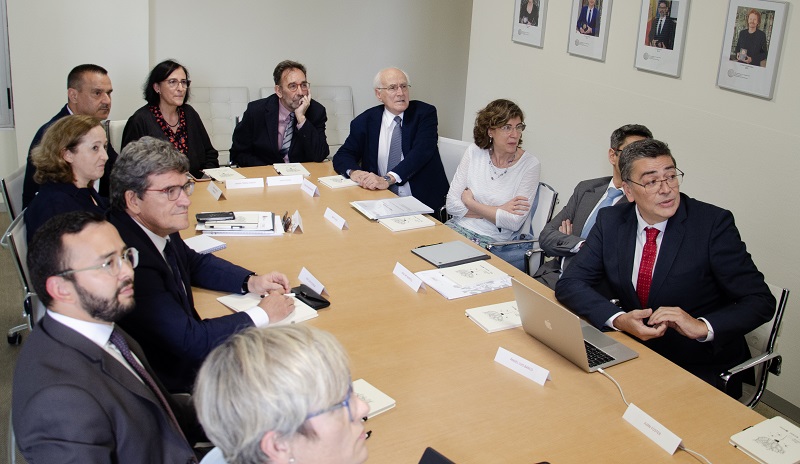
During the tour, they visited the Translational Imaging Biomarkers laboratory of the Molecular Neurobiology and Neuropathology Department, where the principal investigator of this laboratory, Silvia De Santis, showed them various works carried out in these facilities. This laboratory focuses on developing, optimizing, and applying non-invasive and innovative resonance imaging tools, with a translational approach that is relevant both in basic research and the clinical field. An example is the 'MREASI' project, the development of a Deep Learning algorithm to obtain advanced MRI images in a clinical environment.
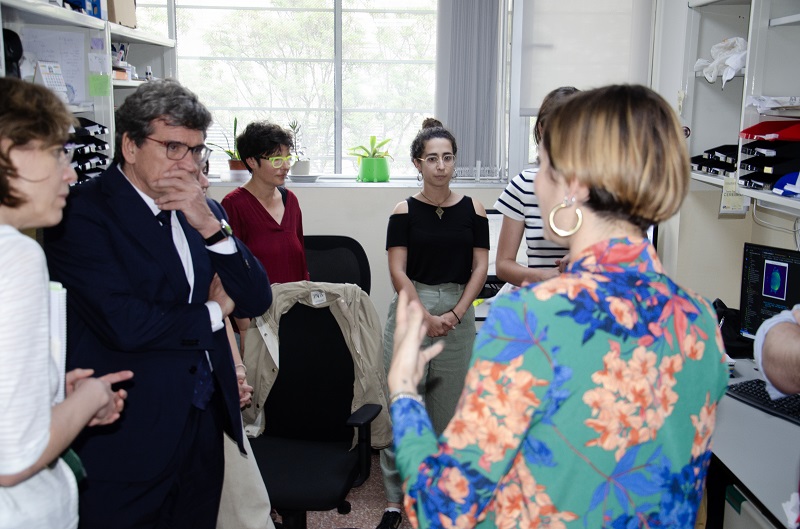
They also visited the Mechanisms of Growth Control and Cancer laboratory of the Developmental Neurobiology Department. Its main researcher, María Domínguez, showed the work they carry out within the framework of the 'AGEGEROP' project, whose objective is to accelerate the discovery of geroprotective agents, that is, interventions with the capacity to prevent, delay or reverse aging. The team investigates geroprotective interventions to prevent frailty in people who have suffered aging-accelerating diseases, such as cancer or COVID-19. To do this, they use the fruit fly as an animal model, an automated platform for behavior analysis, and artificial intelligence tools.
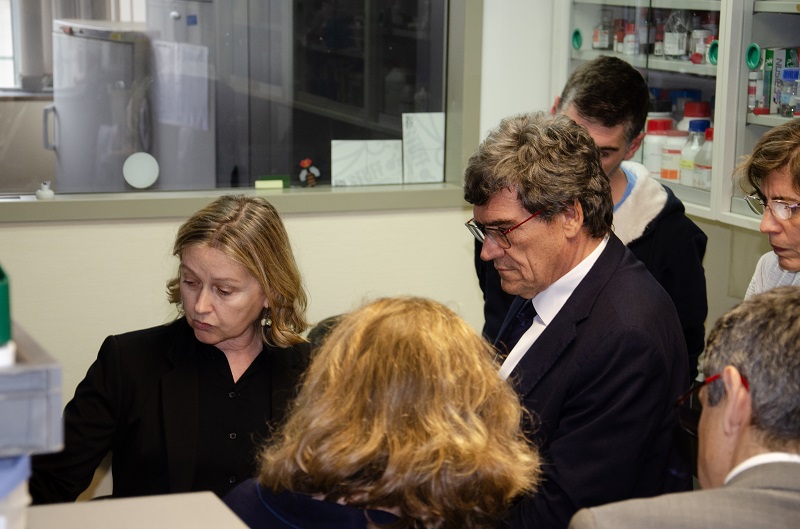
They then visited the Plasticity of Brain Networks laboratory of the Cellular and Systems Neurobiology Department, directed by researchers Encarnación Marcos and Santiago Canals. In these facilities they were able to learn about the 'AppZheimer' project, whose objective is the creation of software that can be used by anyone, at home or in specialized centers, that sends processed results to health professionals to help in making medical decisions and contribute to the early detection of Alzheimer's, thus anticipating cognitive and pharmacological therapies.
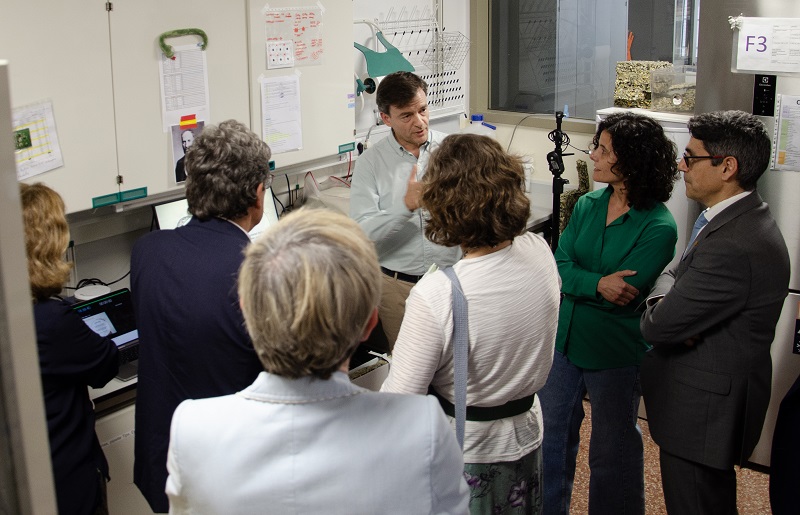
In addition, they have also visited the Development, Plasticity, and Reprogramming of Sensory Circuits laboratory, where they were able to see the facilities together with Guillermina López-Bendito, principal researcher and director of the Developmental Neurobiology Department. The general objective of this laboratory is to understand the cellular and molecular mechanisms involved in axonal guidance of the main axonal tracts of the mammalian central nervous system. Her research aims to repair defective neuronal connections in patients with sensory defects such as blindness.
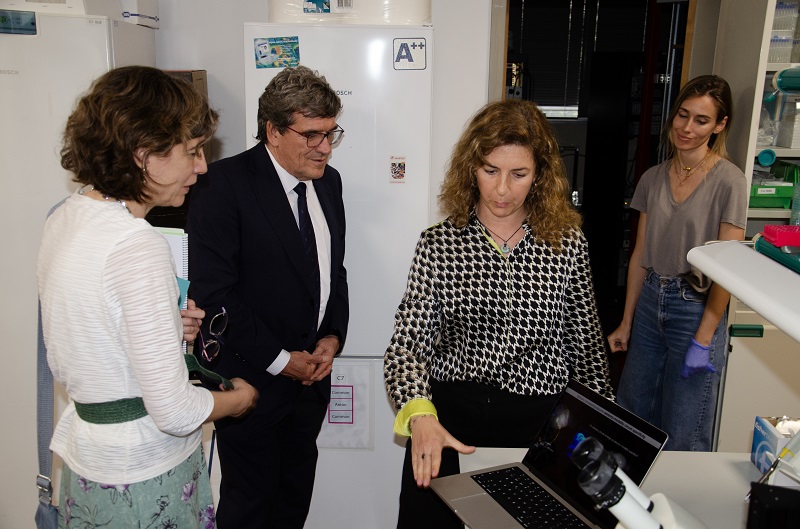
The Minister also had the opportunity to learn first-hand about the development of the spin-off Newmanbrain, a company founded by researchers Carlos Belmonte, the first director of the IN, and Joaquín Ibáñez, professor and director of the Department of Physiology at the UMH. Newmanbrain has developed a non-invasive attention disorder diagnostic device based on infrared imaging and AI analysis.
After the visit to the facilities, a meeting took place with the research staff of the Institute of Neurosciences in which several representatives of the training staff and the technical and management staff also participated.
Source: Institute for Neurosciences CSIC-UMH (in.comunicacion@umh.es)
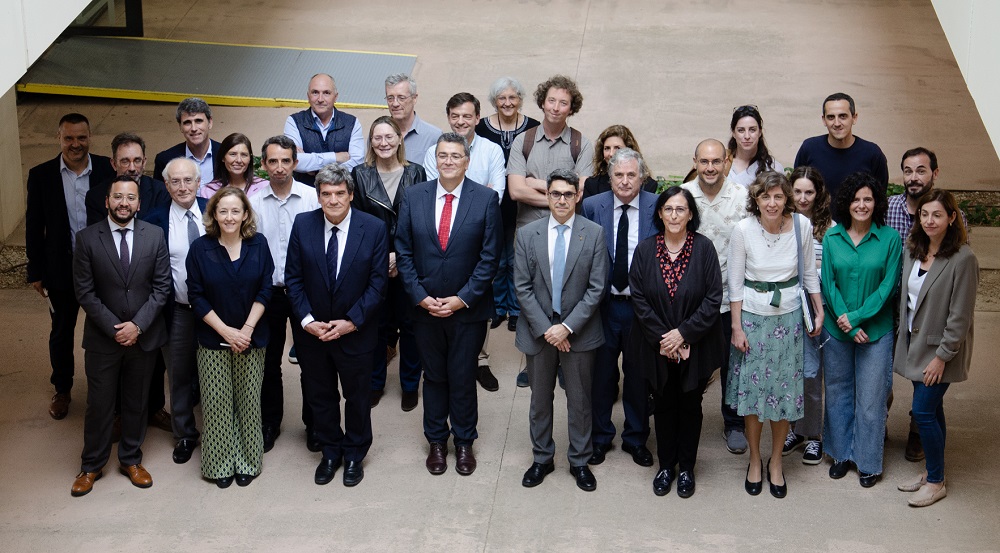
Photo: The Spanish Minister for Digital Transformation and Public Function, José Luis Escrivá, visits the Institute for Neurosciences.

 Español
Español